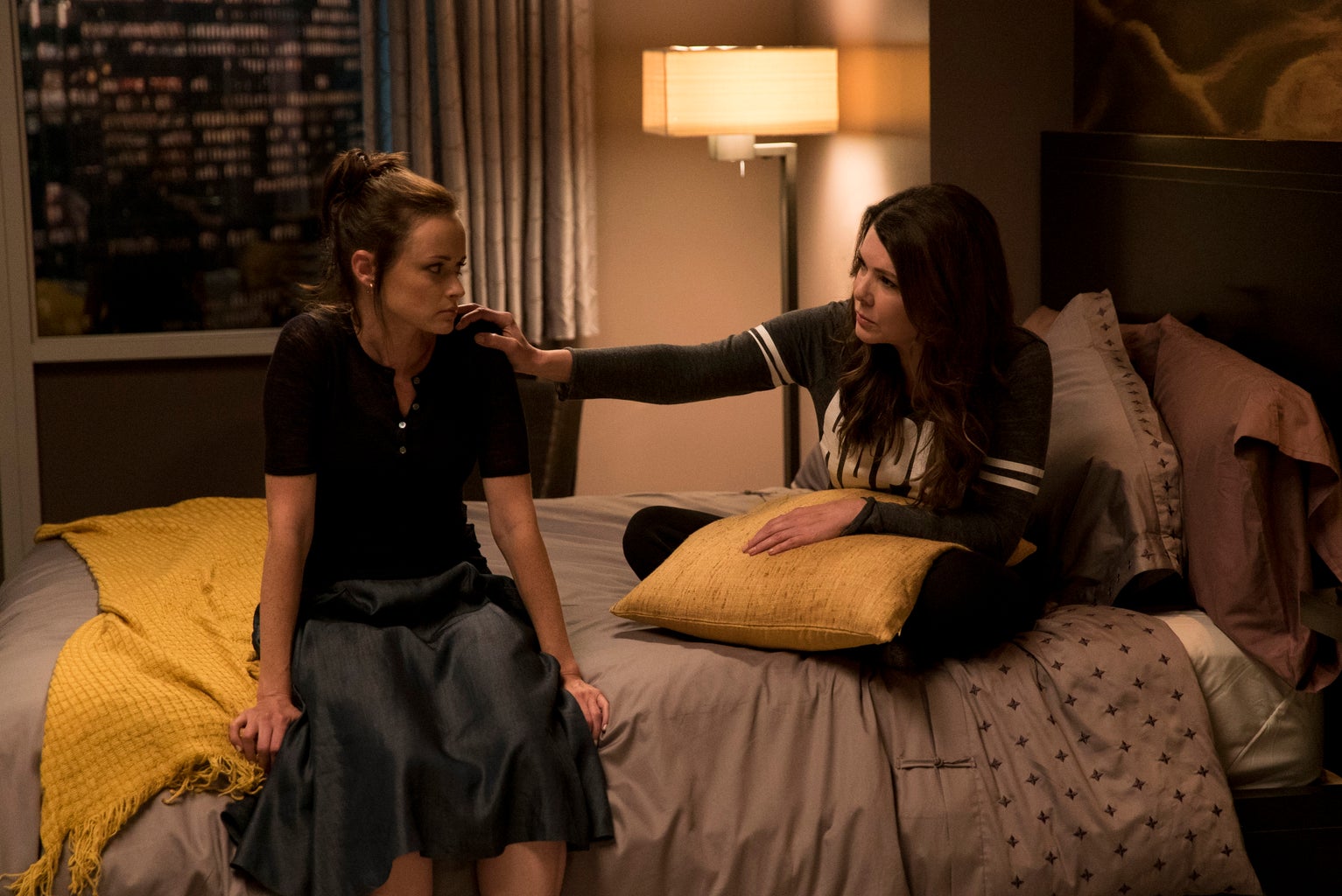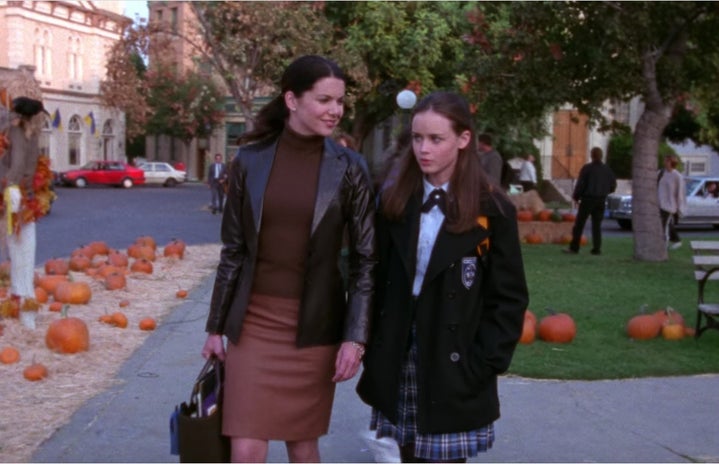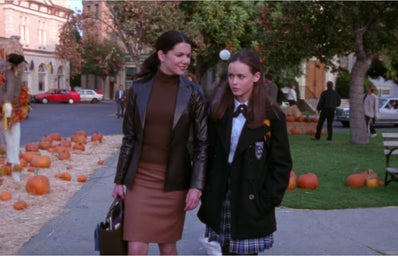*SPOILER ALERT FOR SEASON 5 OF GILMORE GIRLS! It has been out for years! It is worth the watch!*
In Gilmore Girls‘ season 5 finale, Rory Gilmore drops out of Yale after a blow to her self-esteem. This is a highly controversial decision among fans, especially because it causes a long estrangement between Rory and her close friend/mother, Lorelai. However, I found Rory’s decision and burnout to be realistic, as well as something to learn from.
For starters, Rory grew up as the golden child in her small town and within her family. She is characterized by her studious habits, was Valedictorian at her prestigious prep school, and got accepted into three Ivy League colleges. Towards the end of her sophomore year at Yale, she interns for newspaper-mogul Mitchem Huntzberger and he states that she doesn’t have what it takes for journalism. After only two weeks of learning the ropes, Rory is told that she lacks initiative and would make a great secretary to somebody.
This was an instance of blatant criticism versus constructive criticism. If Mitchem intended to help Rory with this feedback, then shouldn’t he have suggested how Rory could have improved? He was her mentor and someone whom she looked up to in the industry. Instead of helping her sharpen skills, he quickly told her she “doesn’t have it,” implying that she has little to no chance to gain “it.” Sure, he was right that she could have spoken up during the staff meeting, but she told him that she didn’t know she was supposed to; Rory behaved as a fly-on-the-wall because her role was to shadow Mitchem as he went about his duties. This miscommunication about Rory’s role as an intern could have easily been clarified before a following staff meeting, had Rory been given a fair chance.
The internship was not the only time Rory’s academics encountered a roadblock: She unhappily received her first D-grade in high school, had to catch up on extracurriculars that she lacked for college applications, dropped a college class because she couldn’t handle her courseload, and adjusted how she wrote to meet the expectations of the Yale Daily News editor. The latter struggle provides a good example of constructive criticism: The Yale Daily News editor told Rory that her work was missing her own opinion. After providing feedback and another article to write, Rory improved and earned a spot on the newspaper staff.
These realistic academic struggles added to the personal struggles of an up-and-down love life, as well as adjusting to a college life that was very different to her familiar small-town life. In her own words, “I messed everything up. I don’t know what to do.” Therefore, I’d argue the criticism from Mitchem was the cherry on top of Rory’s increasing self-doubt. This arc is a case of gifted-kid burnout. As a creative writing major who always knew I wanted to be a writer, I understand her passion and the uncertainty that comes with it. Writing is a subjective, competitive, and unpredictable career.
Her initiative increased while working for the D.A.R. organization during summer and fall. After listening to a trusted friend’s concerns about not living up to her full potential, she found the motivation to return to Yale that spring and soon ends up as Editor-in-Chief of the Yale Daily News. She reunites with Lorelai and apologizes for how she handled things. Retrospectively, Rory took only one semester of absence and used that time to work and gain independence. She returned to school refreshed and confident that she still wanted to pursue journalism.
Something we can learn from Rory’s academic hiatus is to focus on growth and effort, rather than expecting perfection from everything we do. Most people in Rory’s life say she’s naturally gifted, which puts pressure on her to not slip off that pedestal and makes it harder for her to bounce back from adversity and changes. Therefore, it’s valuable to listen to those who offer real constructive feedback. Rory also demonstrated the importance of choice and taking a mental break when it’s needed. We all have strengths to feel confident in and weaknesses to work on, just like Rory Gilmore.



